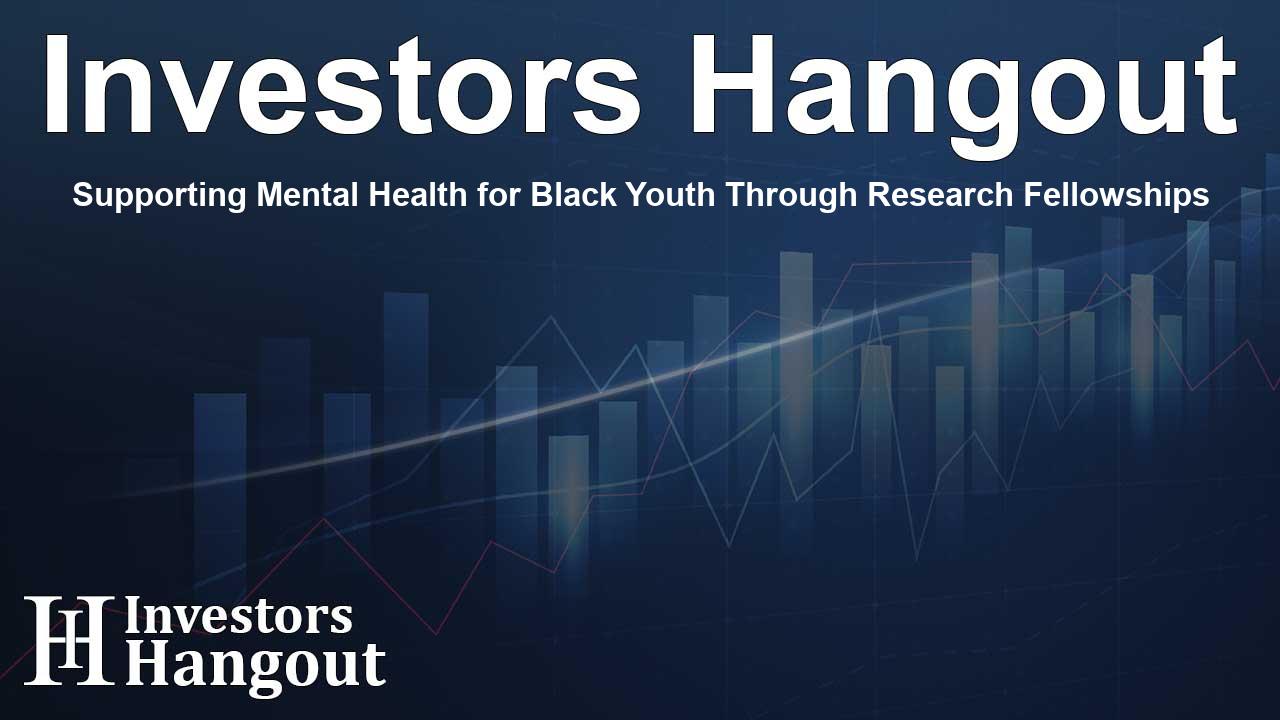Supporting Mental Health for Black Youth Through Research Fellowships

Hopelab's Commitment to Black Youth Mental Health
Hopelab is making significant strides in promoting mental health support for Black adolescents through innovative research initiatives. Recently, the organization proudly announced its second cohort of HBCU (Historically Black Colleges and Universities) Translational Science Fellows. This fellowship program is specifically designed to enhance practical solutions that will bolster the mental health and well-being of young Black individuals aged 10-25.
What is the HBCU Translational Science Fellowship?
The HBCU Translational Science Fellowship serves as a platform that amplifies the visibility of Black youth mental health research. It encourages collaboration among research faculty and upcoming researchers at HBCUs. As part of their journey, these fellows will work together throughout the academic year 2025-26, joining forces with Hopelab experts and industry leaders to advance their impactful projects aimed at improving mental health outcomes for Black youth.
Meet the Inspiring Second Cohort of HBCU Fellows
This year’s cohort comprises six exceptional individuals, each bringing their unique expertise and perspectives aimed at addressing the mental health challenges faced by Black communities.
1. Dr. Davis Austria, Xavier University of Louisiana
Dr. Austria is a pioneer in health equity, creating culturally responsive digital health approaches that use Artificial Intelligence. By merging Black Intellectual Thought with ethical frameworks, he enhances health education tailored to improve the mental well-being of Black, POC, and LGBTQ+ youths.
2. Dr. Arletha W. Lizana, Morehouse School of Medicine
As the Associate Vice President for Health Innovation & Strategy, Dr. Lizana is a nationally recognized leader in health equity. She boasts over $15 million in funding and has developed an extensive array of digital curricula aimed at fostering youth and community mental health.
3. O. Nere Ayu, Ph.D., Howard University
Dr. Ayu focuses on the psychosocial challenges that marginalized youth face, particularly those in out-of-home care. Her work emphasizes the importance of voicing these experiences to improve mental health interventions for at-risk populations.
4. Terri Dilmore, Ph.D., Howard University
Dr. Dilmore, a licensed clinical and forensic psychologist, investigates trauma and its effects on justice-involved young people of color. Her research highlights significant inequities within the justice system, aiming to influence positive change.
5. Roni Ellington, Ph.D., Morgan State University
Dr. Ellington’s work in mathematics education focuses on the experiences of high-achieving African-American students in STEM fields. Her research interests include diversity, equity, and the inclusion of underrepresented groups in educational settings.
6. Dr. Leonna M. Davis, Bowie State University
With a dedication to under-resourced communities, Dr. Davis centers her research around the experiences of Black girls. Her focus is on identity development and the impact of social media on mental health, striving to create media literacy programs that resonate culturally.
Program Overview and Future Goals
Each HBCU Fellow undertakes independent projects specifically tailored to the needs of Black youth. They aim to translate their research into practical applications that can influence practices, products, and policies affecting mental health. The current cohort will continue the momentum built by the inaugural fellows, who have significantly impacted the mental health landscape.
This initiative not only aims to improve mental health outcomes but also empowers a new generation of researchers committed to addressing systemic barriers faced by Black youth. The support from backers, including dedicated foundations, enhances the program's capacity to foster relevant solutions.
About Hopelab
Hopelab envisions a future where young individuals can thrive joyfully and purposefully. As a key player in mental health research and investment, Hopelab passionately champions equitable mental health outcomes for Brown, Black, and Queer youths. Discover more about their mission and initiatives at their official website.
Frequently Asked Questions
What is the aim of the HBCU Translational Science Fellowship?
The fellowship focuses on translating research into practical solutions to enhance the mental health of Black young people.
Who are the members of the second cohort of fellows?
The cohort includes six talented individuals, each contributing unique research expertise aimed at improving Black youth's mental health.
What does each fellow work on during the fellowship?
Each fellow conducts an independent project that addresses the well-being of Black youth, seeking to implement impactful solutions.
How does the fellowship contribute to broader mental health research?
By amplifying Black youth mental health research visibility and fostering collaboration among researchers, the fellowship strengthens the overall academic discourse in this area.
How can I stay updated on future cohorts?
Interested individuals can sign up for the Hopelab newsletter to receive updates regarding future cohort applications and initiatives.
About The Author
Contact Owen Jenkins privately here. Or send an email with ATTN: Owen Jenkins as the subject to contact@investorshangout.com.
About Investors Hangout
Investors Hangout is a leading online stock forum for financial discussion and learning, offering a wide range of free tools and resources. It draws in traders of all levels, who exchange market knowledge, investigate trading tactics, and keep an eye on industry developments in real time. Featuring financial articles, stock message boards, quotes, charts, company profiles, and live news updates. Through cooperative learning and a wealth of informational resources, it helps users from novices creating their first portfolios to experts honing their techniques. Join Investors Hangout today: https://investorshangout.com/
The content of this article is based on factual, publicly available information and does not represent legal, financial, or investment advice. Investors Hangout does not offer financial advice, and the author is not a licensed financial advisor. Consult a qualified advisor before making any financial or investment decisions based on this article. This article should not be considered advice to purchase, sell, or hold any securities or other investments. If any of the material provided here is inaccurate, please contact us for corrections.
